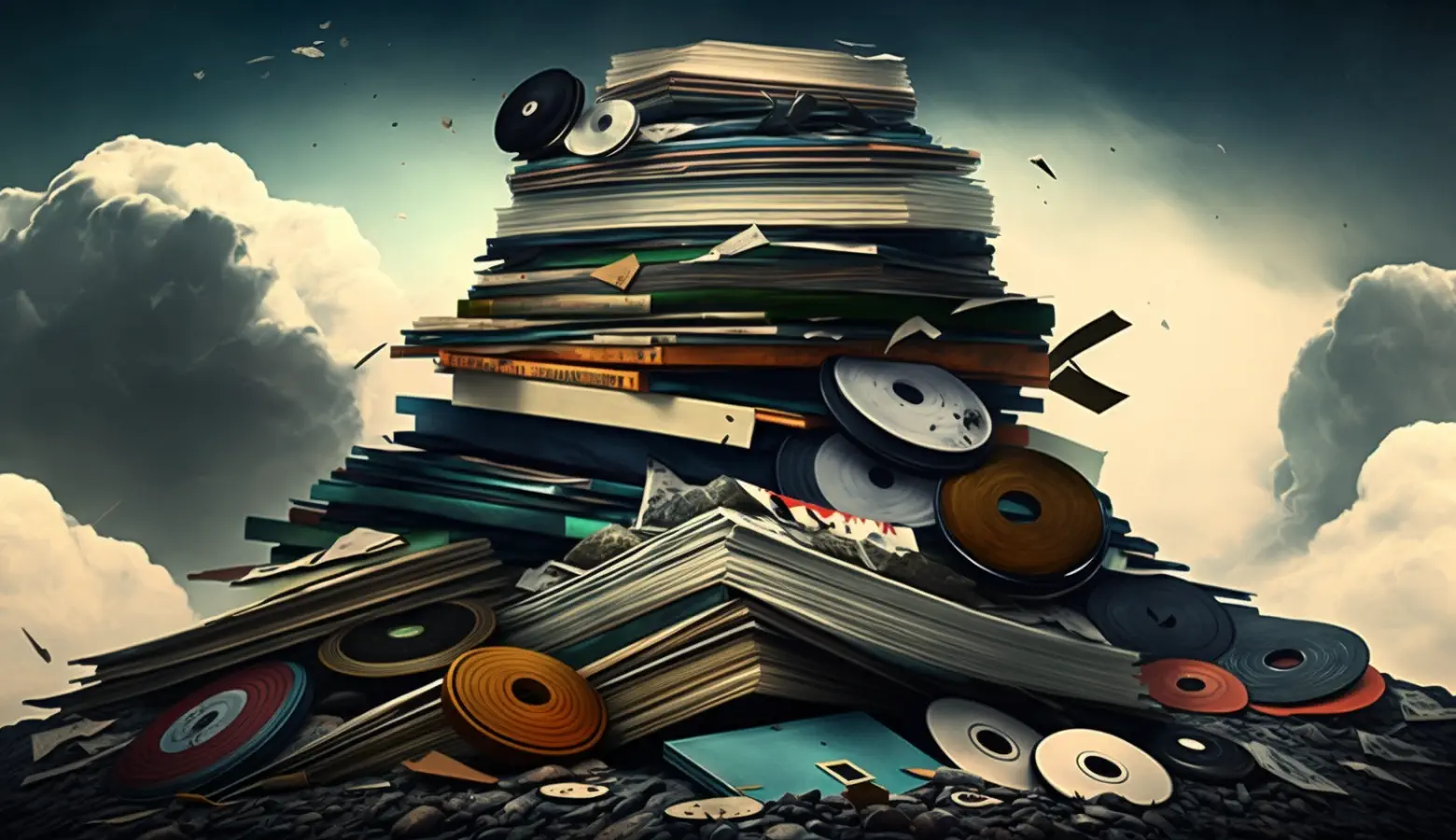One of the most significant developments has been the rise of music streaming services.
The idea of instant access to virtually every song ever recorded was once considered a far-fetched dream, but now it's a reality that has revolutionized the way we listen to music.
Twenty years ago, someone suggesting that a musician could distribute their music worldwide for next to nothing would have been dismissed as a lunatic dreamer. However, with the advent of digital distribution platforms, anyone with an internet connection can now get involved in the music industry. While this is an exciting development, it has also resulted in a massive influx of new music, making it impossible for humans to consume all of it.
There are a lot of stagnant songs on streaming
Rob Jonas, CEO of Luminate, a company that tracks music consumption, presented some shocking statistics at SXSW. According to his data, there are currently 158 million songs available on streaming platforms, and of those, 67.1 million have been streamed ten times or fewer. This means that 42% of the total songs available are not being listened to. Even more concerning, almost 38 million songs have had zero streams. That represents 24% of the total music universe available for streaming, and not even the composers themselves have listened to their own creations.
This is not only a problem from an artistic standpoint, but it's also a financial conundrum. Spotify alone spends at least $150 million per year on cloud storage. With so many songs just sitting on Google's cloud storage servers taking up space and costing streaming services money, some suggest that songs that don't gain traction should be removed from their libraries.
One company trying to help out is Forgotify, which specializes in streaming songs that have never been played before. While this is a unique opportunity for listeners to discover new music, it's also an unfortunate reflection of the overwhelming number of songs that go unheard.
Additionally, technology has made it easier for musicians to create and record their music.
Home recording equipment has become more affordable and accessible, allowing musicians to record high-quality music from the comfort of their own homes. This has led to an increase in the number of independent artists and a democratization of the music industry.
However, the sheer volume of music available can also be overwhelming for consumers. With so much music to choose from, it can be difficult to know where to start.
This has led to the rise of algorithmic playlists and recommendations, where music streaming platforms use machine learning to suggest songs based on a user's listening history and preferences.
While this can be helpful, it also raises concerns about the homogenization of music and the potential for smaller, independent artists to be overlooked in favor of more mainstream, commercially successful acts. Additionally, relying solely on algorithmic recommendations can limit one's exposure to new and diverse music outside of their established preferences.
Despite these challenges, technology has undoubtedly had a significant impact on the music industry and culture as a whole.
It has made music more accessible and provided opportunities for independent artists to reach a global audience. However, it is important to balance this with efforts to promote diverse and independent voices and to ensure that technology serves as a tool for artistic expression and creativity rather than just a means for commercial success.
In conclusion, technology has revolutionized the way we consume, create, and distribute music.
Streaming services have made it possible to access virtually every song ever recorded, and home recording equipment has made it easier for musicians to create and record their music. However, the sheer volume of music available and the reliance on algorithmic recommendations raise concerns about the homogenization of music and the potential for smaller, independent artists to be overlooked. It is important to strike a balance between utilizing technology to expand the reach of music and promoting diverse and independent voices.

